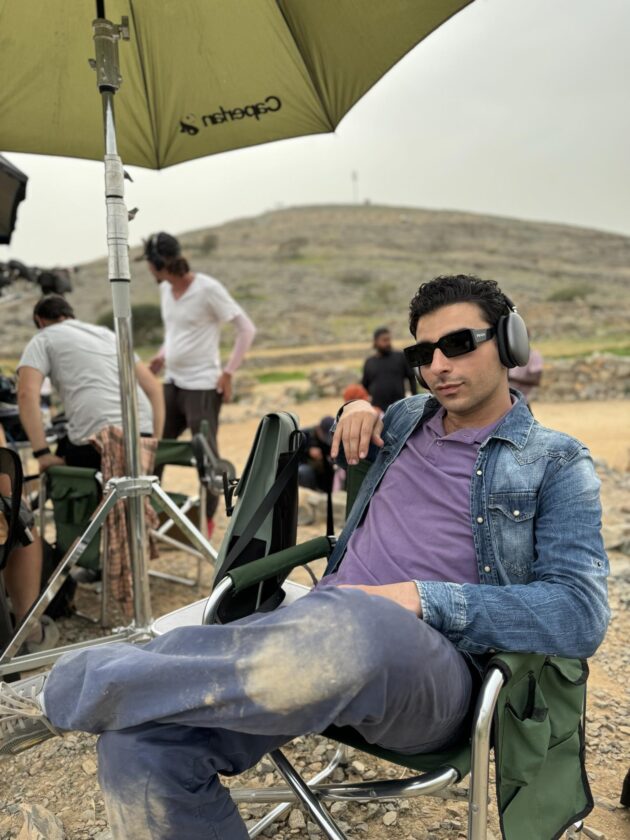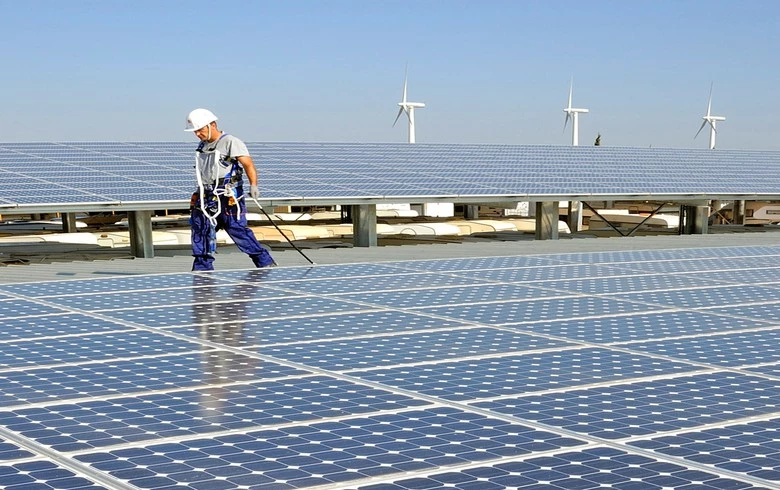Despite the different Libyan struggles and the discrepancies between the internal and external stakeholders of the Libyan conflict, the general picture depicts that the controversy is limited to the commander of the army of the House of Representatives (HoR), General Khalifa Haftar, who refuses talks, signaling the military solution, there is where observers are trying to include him within foreign interferences in Libya, bargains for that party or another.
According to a report by Al-Araby Al-Jadeed website (translated here by LIBYAPROSPECT), Haftar’s ambitions are no longer about the army command or the defense portfolio but exceed to controlling the whole country. Such dreams are fed from external parties, like France, who secretly supports that orientation, while publicly confirms its support to the Presidential Council (PC) of the Government of National Accord (GNA) that led by Fayez Al-Sarraj.
Sources said that “the French presidential elections would have a direct influence on the Libyan crisis, which might be the primary motive for the trilateral motivation called for by Tunisia, Algeria, and Egypt.”
According to the report, sources said that the political circles in France seem reluctant regarding its options in Libya, but the French intelligence is managing the Libyan file. The sources also pointed to French bodies seek to persuade other international parties that Haftar is not just part of the resolution, but he is the possible resolution. The sources added that “the French bodies promote the idea that Haftar is the robust figure, vis a vis Al-Sarraj weak performance and inability to manage Libya.”
In case, the conservative candidate, the former French prime minister, Francois Fillon wins the French presidency, it would be a decisive factor in defining Libya’s future, as it will increase French – Russian rapprochement, and it may indicate more support to Haftar, according to the sources. But such plans collided with the Libya realities, as the six-year experiences proved that such option is entirely unlikely, the reasons are many, most importantly refusal of western Libya to that proposal.
Despite the relative decline in the alliances of forces on the west side of Libya, but acquiescing power to Haftar, if even proposed, will ignite broad confrontations across Libya. Add to that; the neighbor countries had stressed in their Tunisia statement their objection to the military solution and the foreign intervention, in an apparent reference from Tunisia and Algeria refuses such proposals to the Libyan mayhem.
Sources referred that powers in the western Libya are about to lose the valuable card in the conflict, as they are reluctant to reach the reconciliation with Gaddafi supporters, which would benefit Haftar, according to the sources. Some see the western Libyan factions don’t have much time; they only must use the reconciliation card which is very decisive in the conflict, and in defining the future of internal relations in general, regardless the military option. The sources also spoke of promises to release Gaddafi supporters, including women from prisons.
Some factions in the western Libya accepted the concept weeks ago, but still reluctant, which would deny the possible rapprochement with Gaddafi supporters, which is like a gift for their rivals in the east and Haftar. The sources ask different questions regarding the trilateral initiative and how it would deal with Haftar’s power ambitions, or would it fail as Cairo last week when it tried to pull the rug from Tunisia and Algeria when it launched the unsuccessful solo initiative, following Haftar refusal to meet Al-Sarraj.
Many observers question the ability of Tunisia and Algeria to persuade Haftar to revise his ambitions, following Cairo’s apparent failure, persuading him that talks and mutual compromises are the only solutions, not the military action. Tunisia, officially, sent direct invitations to Haftar to visit Tunisia. The Tunisian officials stress Haftar is part of the solution and that he is welcomed in Tunisia, relative sources said he is to visit Tunisia soon, but Haftar announced, on Wednesday, that he is looking forward to visiting Tunisia as soon as possible. But the sources said that the visit is being prepared within massive political and security arrangements.
The Tunisian meetings with the leading Libyan stakeholders intensified. The Tunisian Foreign Minister, Khamis Jhainawy, met the resigned PC member, Moussa AlKoni, who welcomed the Tunisian efforts. The State Council chairman, Abdul-Rahman Al-Swehly, visit Tunisia was undoubtedly a state visit, as he was officially welcomed at the airport by the Tunisian parliament chairman, Mohamed Nasser, he met the Tunisian President Baji Caid Essibssi and the heads of the parliamentary blocks.
Tunisia is racing with time afraid of dire consequences, amongst massive internal Libyan contradictions, international competition, and contradicted international positions regarding the solution. Observers fear that the crisis is overly prolonged, which might prompt decisiveness by any mean other than the talks. But any such scenario will be related to the new American vision in the region. The call between the American President, Donald Trump, the Tunisian counterpart Essibssi bore some features of the American view, which explains the accelerated Tunisian efforts regarding Libya.
LIBYAPROSPECT





Comments are closed.